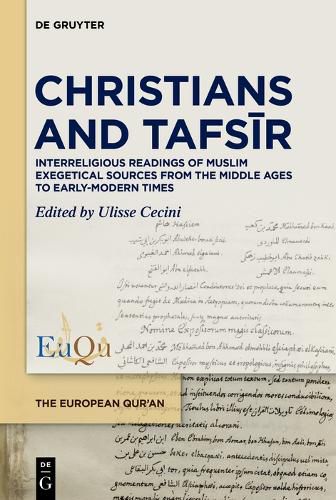Readings Newsletter
Become a Readings Member to make your shopping experience even easier.
Sign in or sign up for free!
You’re not far away from qualifying for FREE standard shipping within Australia
You’ve qualified for FREE standard shipping within Australia
The cart is loading…






Most of the scholarly research about the Christian textual production engaging with Islam in medieval and early modern times concentrates on the role of the Qur'anic text in such works. The role of Tafsir (Qur'an commentary) in those texts has not been directly and systematically object of research. This book reunites contributions by international specialists that look for the presence of Tafsir in texts by authors that go from Syrian and Coptic Christians from the 9th and 11th centuries (like Us?ath al-rahib and Bulu? ibn Raja?) to Latin scholars on the Iberian Peninsula in the high Middle Ages (Robert of Ketton, Ramon Marti) and at the Renaissance court of the Duke of Urbino (Flavius Mithridates), finally dealing with the use of Tafsir by early-modern intellectuals in eastern and western Europe in their efforts in the fields of philology, interreligious polemics, linguistics and historical studies (with contributions, among others, on the Lead Books of Granada, Abraham Wheelock, Germanus de Silesia, Ludovico Marracci and Dimitrie Cantemir). This shows the relevance of Tafsir in Christian textual production and fills the gap about this fundamental aspect of Christian-Muslim relations.
$9.00 standard shipping within Australia
FREE standard shipping within Australia for orders over $100.00
Express & International shipping calculated at checkout
Most of the scholarly research about the Christian textual production engaging with Islam in medieval and early modern times concentrates on the role of the Qur'anic text in such works. The role of Tafsir (Qur'an commentary) in those texts has not been directly and systematically object of research. This book reunites contributions by international specialists that look for the presence of Tafsir in texts by authors that go from Syrian and Coptic Christians from the 9th and 11th centuries (like Us?ath al-rahib and Bulu? ibn Raja?) to Latin scholars on the Iberian Peninsula in the high Middle Ages (Robert of Ketton, Ramon Marti) and at the Renaissance court of the Duke of Urbino (Flavius Mithridates), finally dealing with the use of Tafsir by early-modern intellectuals in eastern and western Europe in their efforts in the fields of philology, interreligious polemics, linguistics and historical studies (with contributions, among others, on the Lead Books of Granada, Abraham Wheelock, Germanus de Silesia, Ludovico Marracci and Dimitrie Cantemir). This shows the relevance of Tafsir in Christian textual production and fills the gap about this fundamental aspect of Christian-Muslim relations.